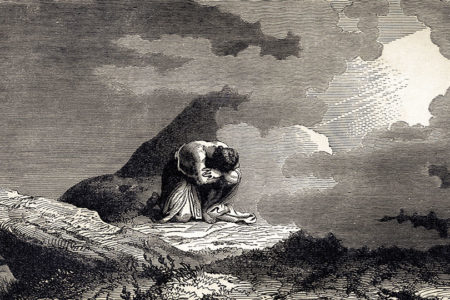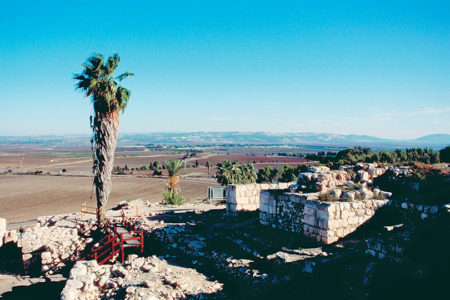The Crescent and the Cradle
The following is excerpted from Voices Behind the Veil, edited by Ergun Caner coauthor of Unveiling Islam, and published by Kregel. (Used with permission.)
The main role of the Muslim mother is to raise children according to the wishes of her husband. With that said, she desires to rear children who will become good Muslims in hopes they will receive the ultimate heavenly reward from Allah, the ultimate reward being Jannah (paradise).1 Likewise, a Muslim mom believes she will be rewarded for bringing up children who keep the commandments of Allah.
For Muslims, their hope of salvation is based on works. So no matter how hard they try, there is no real assurance of attaining paradise. This translates into every arena of their lives. Therefore, Muslim mothers have the burden of works not only for themselves, but for their children too.
They see most akafir (infidels) as bad mothers, sending their children off to daycare so they can work away from home for worldly gain or acceptance. In Muslim countries, such as Iran, Iraq, and Pakistan, males are at the top of the familial pyramid. Even in wealthier homes the boys are given more than girls are, from proper nutrition to adequate health care.2 Also, the mother and father will show how the brothers come first in everything, regardless of age.
Jan Goodwin, in her book, The Price of Honor, shares several stories of the male dominance in the Muslim family unit. While visiting a Muslim family in Pakistan, she watched how a nine-year-old boy, by just glancing at his seven-teen-year-old sister, caused her to get up out of her chair for him to sit. The sister proceeded to sit at his feet. On another occasion Goodwin watched as a seven-year-old told his mother that she was not allowed to attend a parenting class. The mother acquiesced.3
Birth of a Child. In Muslim countries the birth of a boy is met with heartfelt joy and pride. If a girl is born, it is an occasion for mourning. Some mothers have received a slap in the face from their husbands for giving birth to a girl. Relatives will offer words of encouragement, “Next time, you’ll give him a son.” A Muslim man has the right to take a second wife or divorce his wife if she does not produce a son. The birth of a daughter is seen as the woman’s fault. It is believed that the woman determines the sex of the child. As one can see, discrimination for Muslim women starts at birth.4
Khitan, or circumcision, is performed on the seventh day [of a child’s life]. The Judaic tradition is to circumcise as a symbol of God’s covenant with His people. For Muslims, circumcision is an act of taharah (purity and cleanliness).5 It in no way symbolizes a covenant with Allah. In Islam, circumcision is also performed on girls. For example, in Egypt over 80 percent of the female population is circumcised.6
During the 1994 Population Conference in Cairo, CNN reported on the circumcision of a 10-year-old Egyptian girl. The young girl’s wrists and ankles were bound. Gathered around her were her family, including her mother, who was singing. After the circumcision was completed, she asked her father, “Why did you do this to me?”7
Islamic leaders believe female circumcision is necessary to control a woman’s sexual appetite, which in turn will keep the rate of extramarital affairs down, and thus, ultimately preserving the Muslim family.
Witnessing. Christian women can readily find a number of bridges into the life of the Muslim woman, so as to earn a hearing for the precious gospel of Jesus Christ. In an era of lax morality, the Muslim woman follows explicit instructions so as to avoid raising a rebellious child. In fact, Muslims look upon the unruly children in Christian homes as clear evidence that we are on the wrong path and do not have the truth. “If the Christian God is real,” they will ask, “why can He not control your child?” The teaching of the prodigal son is a tremendous text (Lk. 15:11–32). The encouragement of a God who not only cares for the wayward son, but actually stands watch waiting for him to return, is an encouragement that Islam does not offer.
What hope does Islam offer? Only the absolute judgment and punishment of a god who is not personal, only judge. Yet, in Christianity, the God of the Bible not only judges and chastises, He also lovingly awaits the return of His children and accepts them back lovingly and graciously upon repentance. The biblical God is not only Judge and Sovereign, but He desires to be their Father. This is the fundamental distinction.
Secondly, we have seen the diminished worth of the female in Islamic society. Y et deep within their hearts, they cry out for a God who does not relate to them only in relation to their husbands or male children, but intimately, as those created in His image and loved precisely as women. Point them to Galatians 3:28.
Finally, the constant angst of hoping that her good works outweigh her bad works is exponentially expanded to include the scales that await her children. The Muslim woman can be pointed to the assurance we have in Christ Jesus—the hope that dwells deeply within us and gives us hope when the darkest days envelope us.
ENDNOTES
- “The Muslim Mom,” [www.muslimmom.com/parenting/parenting1a2.shtml]. Accessed October 9, 2002.
- Jan Goodwin, Price of Honor (Plume, 1994), 44.
- Ibid.
- Ibid., 43.
- Norma Tarazi, The Child In Islam (American Trust Publications, 1995), 9.
- James J. Napoli, “Population Conference Gives Boost to Egyptian Tourism,” Washington Report on Middle East Affairs, November-December 1994, 18, 89.
- Geneive Abdo, No God But God (Oxford University Press, 2000), 59.







